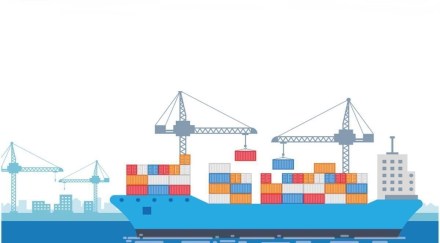By RV Anuradha
With economic and geopolitical upheavals worldwide, India is being courted for strategic partnerships through trade and investment agreements. After a hiatus of almost a decade, India has signed free trade agreements (FTAs) in quick succession in the past few months, with Mauritius and the UAE and an interim FTA with Australia. The visits of the UK prime minister and the European Commission’s president earlier this year have added impetus to the FTA negotiations with both the UK and the EU, respectively. Negotiations with Canada have also been revived after almost five years. The government reportedly is planning to set up an inter-ministerial panel to fasttrack the multiple ongoing negotiations.
The new FTAs mark a bold, reinvigorated India seeking to maximise its advantages from the economic and geopolitical upheavals worldwide. For most trading partners, seeking reduction in tariffs for access to the Indian market is a big ask. With skilful negotiations keeping sensitive products from key sectors outside of the purview of the FTAs, including dairy, agriculture, automobiles, medical devices and consumer electronics, the stumbling blocks that prevented India from being part of the Regional Cooperation for Economic Partnership (RCEP) in 2019 have so far been avoided.
There are, however, three key areas where greater caution and prudence would be needed.
First, the FTA provisions on trade in services. The role of India’s services sector in raising the rate of economic growth has steadily been expanding, with estimates that it contributed 53% of India’s Gross Value Added at current prices in FY22 (until January 2022). To maintain our competitive advantage, it is critical to ensure an dequate carve-out in the policy space for regulatory restrictions, both existing and those that may emerge in future. While taking the commitments on market access under the schedule of commitments (SOCs) to an FTA,it is still possible to factor in such regulatory restrictions. Careful scheduling will help preserve our leverage, particularly in sensitive areas where the laws are still evolving. For example, RBI currently mandates data localisation of all payment data, and is also reportedly considering restrictions on processing of payment transactions abroad. Another particularly tricky aspect is with regard to the rapid evolution of digital technologies, which has enabled electronic delivery of services that were traditionally assumed to be possible only through the physical mode, such as construction services through 3D printing. In situations such as these, it is important to build in adequate restrictions in the SOCs to preserve future policy space.
Drafting-lapses can impose a significant cost on a country in the case of trade disputes; to remedy this, the losing country would need to consider amendment to its laws, or face retaliatory action. In the very first WTO dispute involving commitments on trade in services, the US’s oversight in factoring restrictions on online gambling services, resulted in its loss to Antigua & Barbuda, and consequent retaliatory measures.
A second area for particularly careful consideration are FTA chapters on environment, labour and sustainable development. This is inevitable in the FTAs with the UK, the EU, Canada, and any other developed country. India’s longstanding concern has been that trade agreements cannot be the instruments through which such non-trade issues can be genuinely addressed, and, furthermore, the trade-environment or trade-labour linkages, would run the risk of these issues becoming a proxy for trade protectionism. India does not shy away from commitments in these areas and continues to play an active role in multilateral environmental agreements (MEAs), in the International Labour Organisation’s (ILO) conventions and recommendations on labour standards, and engaging with the United Nations Sustainable Development Goals.
Sustainable development, to be meaningful, requires adequate attention to each of its core pillars: economic, environmental and social. While addressing the environmental and social (labour) pillars in FTAs, India would need to ensure that the careful balance achieved in MEAs and in the ILO instruments is not compromised. For example, the United Nations Framework Convention on Climate Change (UNFCCC), including the Paris Agreement and Glasgow Accord under it, recognises the differentiated accountability of countries for the climate crisis, and does not prescribe a “one-size-fits-all” approach to emission reductions.
These instruments also emphasise financial assistance and technological transfer from developed to developing countries as crucial to achieving climate change goals. Our FTA chapters need to reflect the same balance. Additionally, the FTAs with the EU and the UK present an opportunity to negotiate exemptions from the imposition of unilateral carbon border adjustment measures that would require Indian exports in sectors such as iron and steel, refineries, cement, aluminium, organic basic chemicals, polymers, and fertilisers, to pay the EU and the UK, respectively, to compensate for India’s lower emission reduction obligations. Such measures are clearly iniquitous, unfair and contrary to the principles of differentiated responsibilities between countries and sustainable development enshrined under the UNFCCC. Any meaningful FTA partnership, should adequately address these concerns.
And lastly, dealing with digital trade and e-commerce in the FTAs is inevitable. Playing well, India can maximise its existing competitive advantages in digital technologies. But, for that, we need to expedite the changes to our legal and policy frameworks on issues relating to taxation and duties on electronic transmission and digitised goods and services, as well issues relating to data localisation and privacy. Clear commitments under FTAs will flow from clarity in our own framework.
India’s recent engagement on the subject of FTAs clearly demonstrates an evolution in our approach to such deals. FTAs are no longer about “trade liberalisation” alone, but about strategic partnerships. Defining what we want, both on the trade and non-trade aspects, and ensuring that FTA commitments follow, rather than lead, regulatory changes, are critical for maximising our advantages.
(The author is partner at Clarus Law Associates, New Delhi)
